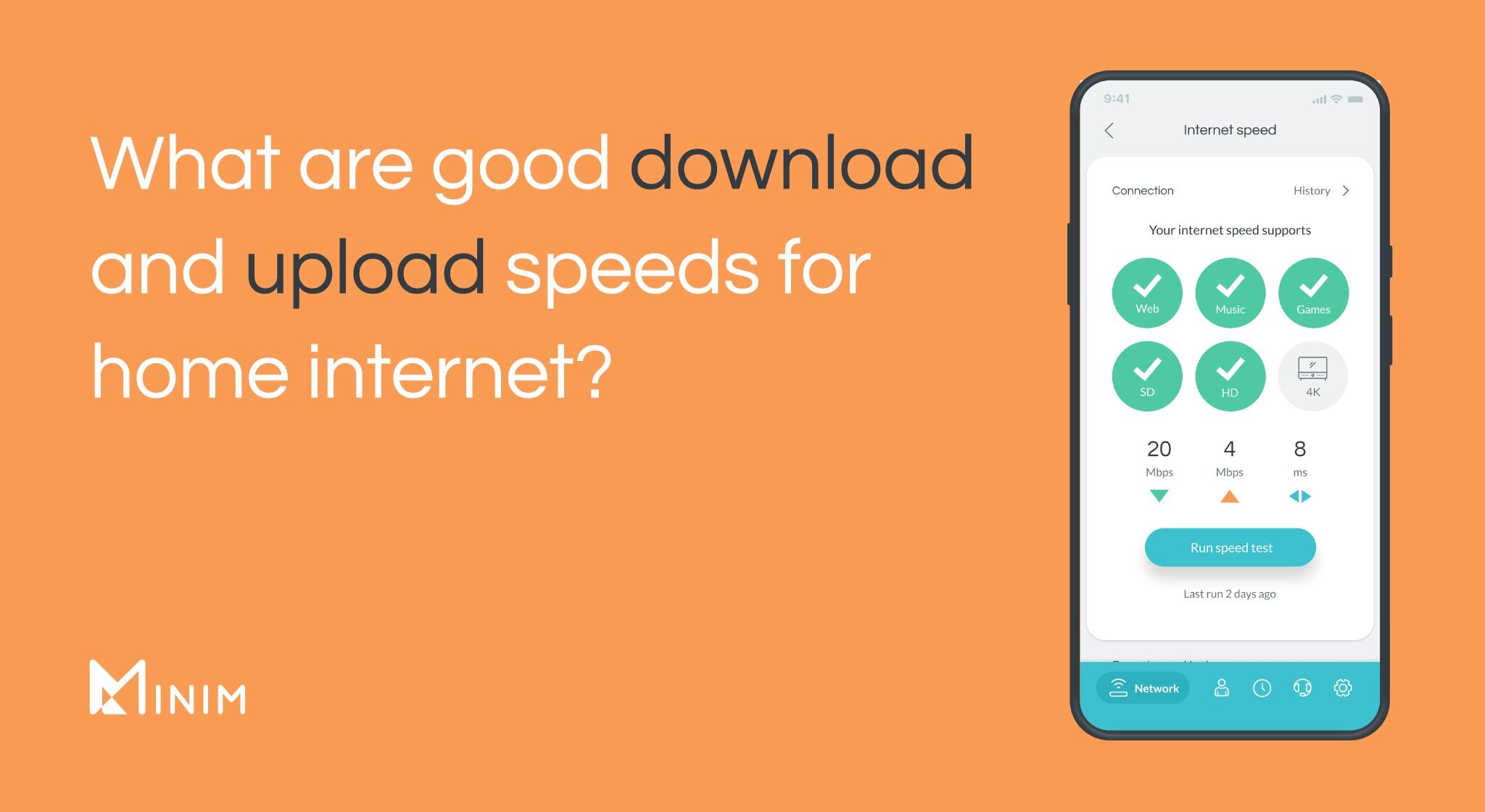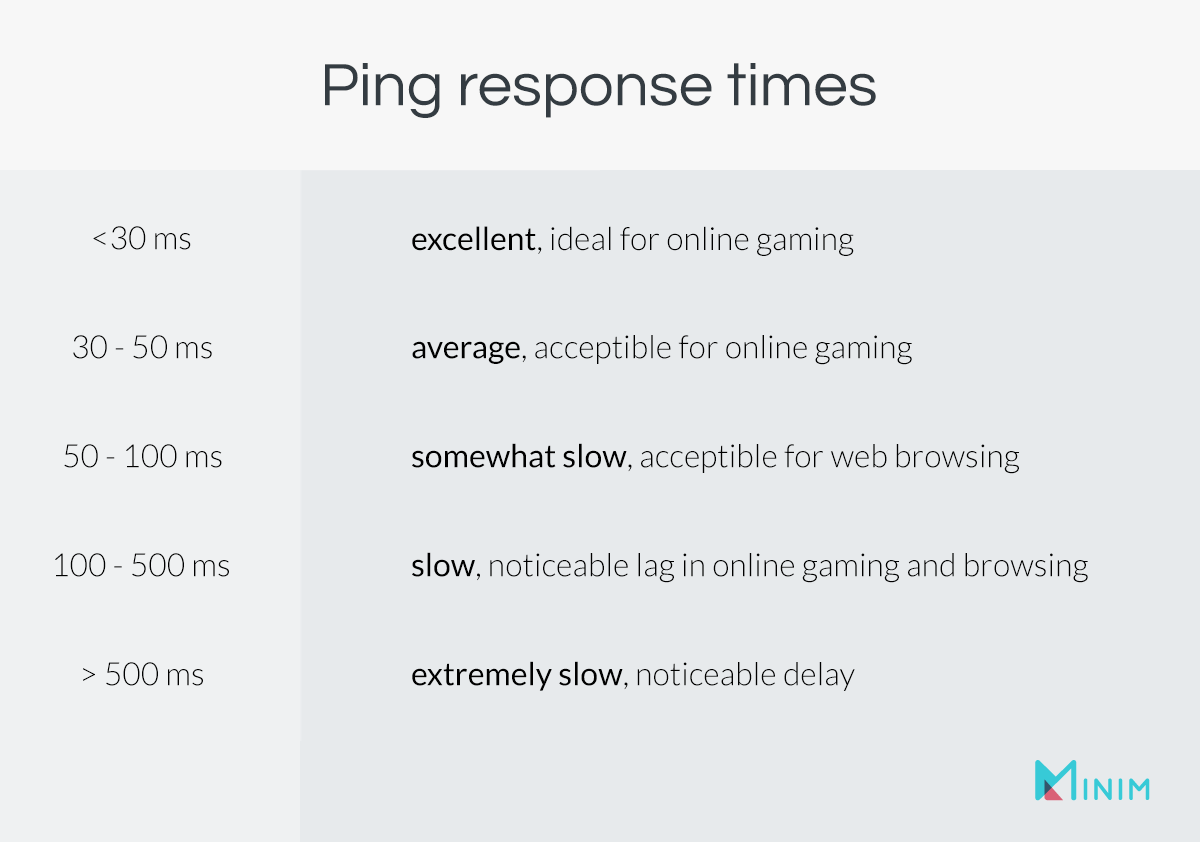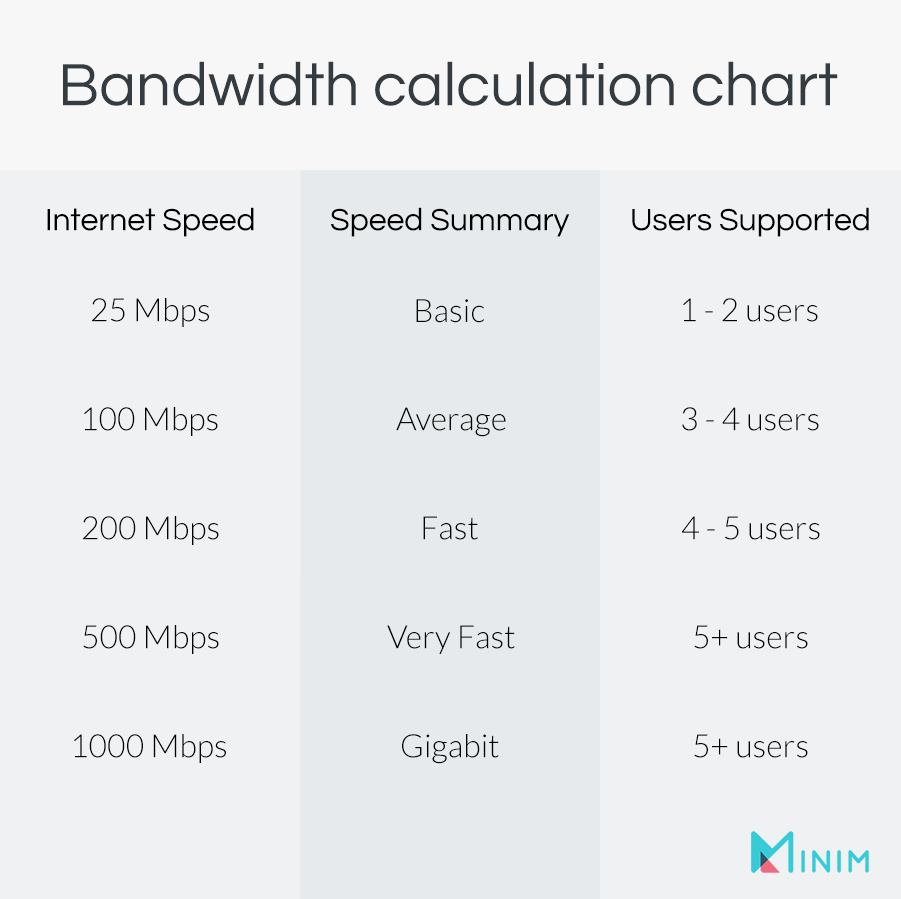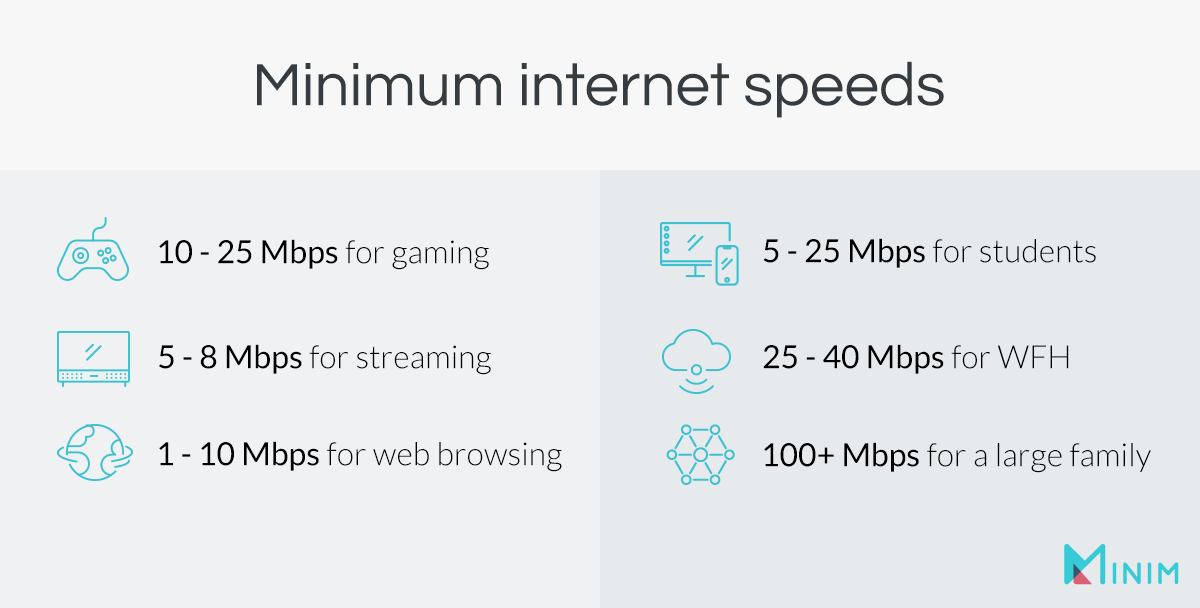What Are Good Ping Download And Upload Speeds

Accept yous ever wondered about what internet speed package you should choose for your household? Are you worried y'all're paying likewise much for a package you aren't using all of? We all want fast net, but sometimes we only don't need the fastest service available. In this blog, we break down the terms y'all'll meet from your cyberspace service provider, talk over how to test internet speeds, and guide you to a smarter, more than informed purchase. Download speed refers to the speed at which your net connexion is able to call up data from the internet. Upload speed refers to the speed that your internet connexion can let data to be sent from your devices to the internet. When purchasing internet packages, information technology's often the download speed that's advertised. Download speeds are much more of import than upload speeds for an boilerplate internet user equally about of the activeness y'all practise depends on it. Streaming videos, for case, use download speeds, whereas upload speeds are only utilized when a user is uploading a photo to social media. A user is more likely to utilize download speeds than upload speeds. Upload speeds for dwelling net are often near one/10 th of the speed of your download speed. Good internet speeds are determined (and sometimes restricted) by private needs and location of where your services are needed. For example, if your household is located in a rural area, chances are you might have a cap on the maximum speeds available for your household because of the networking infrastructure built in your area. Co-ordinate to the FCC, a student would demand anywhere between 5 and 25 Mbps, whereas a person who streams videos or browses the internet would merely need betwixt ane and 8 Mbps. Mbps stands for megabits per second and is a unit for the amount of data that tin be transferred every second. Information technology'south used when determining internet bandwidth speeds. There are many factors to accept into consideration when determining what speeds are "good" for your specific situation. A household who has a gaming system might need a minimum of ten - 25 Mbps, but might too need an additional 1 - 10 Mbps of bandwidth to support other functions that are occurring at the same time. It depends on the amount of internet users in the family who are also using the bandwidth in your home. When considering the quality of your broadband connection, some other important measurement is latency—an important benchmark when it comes to gaming and streaming because of its ability to touch on gameplay or buffer times. A lag in online gaming can have consequences, for case, but when browsing the web, it isn't as important. A ping test is a asking for a response that's sent to a host to measure the latency, or time elapsed, in the response. Latency is the quantifiable delay (usually measured in milliseconds) of data transfer between your local computer and a remote server. There's a higher latency between a server in Europe versus a server in the United States, for case, fifty-fifty when using the same calculator. The best latency speed you can have is zero. Sometimes, the terms latency and ping are used interchangeably. Ping is also measured in milliseconds, with an average ping time landing anywhere betwixt 30 ms and 50 ms. Ping depends on where the remote server is located that you're trying to ping, where you're located, and the altitude between the two. Do you want to know what your current internet speeds are? Are you considering an upgrade to your current services? There are some handy tools online that can help with finding your current internet speed, ping times, and even more than statistics so you can make a more informed purchase. With these free services listed below, y'all can even track outages and log your speeds on unlike days at unlike times. Here are some examples: Allow'southward be honest: choosing the right net speed for your home depends on your budget and your needs. Below are some tips on what you should aim for when purchasing your internet bundle or upgrading your current internet services. Whatever speeds that clock 200 Mbps or in a higher place are considered "fast." Anything close to or at 1000 Mbps is considered a Gigabit speed or service. These are premium service packages and are frequently merely bachelor in certain areas where service providers have networks prepare to sustain these speeds. Most households don't require this kind of speed, yet. Unremarkably, these speeds are reserved for businesses or high-traffic, high-demand networks like university campuses. The speed your household actually needs is likely less than you call back. Information technology's pretty standard for nigh of today's households to demand 25 Mbps of bandwidth speed. Of course, there are e'er other factors that play into your decision, and your individual needs should always be considered starting time. This can be the biggest factor in a household's needs for internet bandwidth. If you're an avid gamer or have children who participate in online gaming matches, the minimum speed you should accept is 4 - 8 Mbps. This is to keep gaming sessions costless from lag, framerate drop, and crashing. We recommend anywhere from 10 - 25 Mbps if possible to ensure a smooth gaming experience that won't affect other devices in the house trying to apply the internet at the same time. The most frustrating attribute when it comes to streaming is buffering. Information technology can ruin movie night and lead to boredom during at-home quarantine. We recommend at least 3 to 4 Mbps for standard definition video streaming, 5 to 8 Mbps for high definition video streaming, and at to the lowest degree 25 Mbps for streaming Ultra HD 4K videos. Web browsing and social media scrolling don't take much bandwidth on a network. We recommend anywhere from 1 to ten Mbps for these activities at whatever point in fourth dimension. Working from dwelling presents a new set of challenges for the home network. From video briefing calls to streaming, WFH jobs demand more than standard usage--peculiarly when a family has children and other high-bandwidth users hogging the internet at the same time. Nosotros recommend at least 40 Mbps for working from dwelling house. The amount of bandwidth that's used is a lot more for large file transfers, video conferencing, streaming, emailing, computer programs, and more than. If you still aren't certain what yous need, you can use this handy estimator by BroadbandNow to decide the minimum internet speed you should have for your household. There are a couple of options when it comes to fixing your internet speed when your WiFi speed test results aren't what you lot expected. The easiest and probably the commencement option to explore is to simply move your router to a centralized location in your home. If that isn't possible or you've already tried it, you lot tin can purchase WiFi extenders or mesh networking devices for your home that volition help with expressionless zones. Lastly, you tin can get in contact with your internet service provider and upgrade your service to something more suitable for your needs.
Download speed vs upload speed: what's the difference?
What'due south a skillful download speed and upload speed?
Other important measurements: latency and ping

How do I find what my internet speed already is?
What practice I really need in my domicile?
What's a "fast" internet speed?

Gaming speeds
Streaming speeds
Web browsing and social media speeds
Working from home speeds

Beyond speed: tips to improve your WiFi feel
More WiFi 101 topics you may like:
Source: https://www.minim.com/blog/what-is-a-good-download-and-upload-speed-for-home-internet
Posted by: isaacsprit1973.blogspot.com


0 Response to "What Are Good Ping Download And Upload Speeds"
Post a Comment